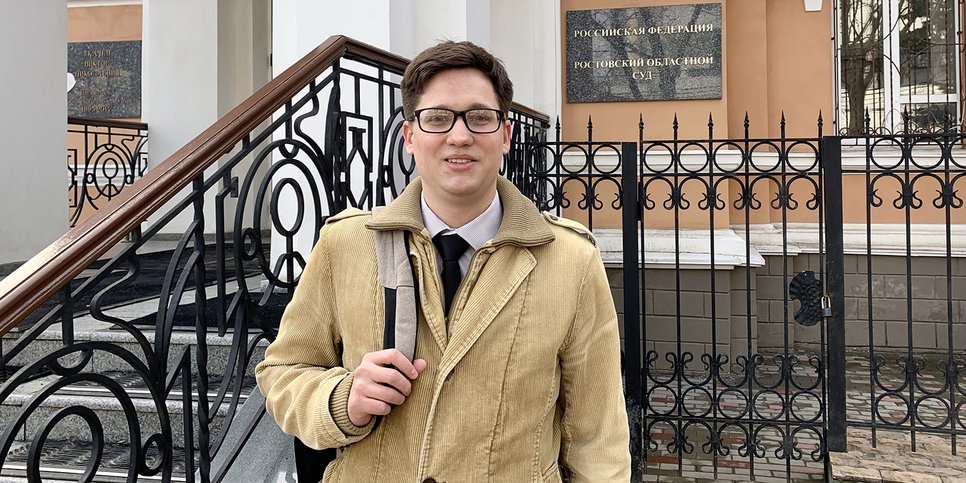In the photo: Semyon Baibak near the building of the regional court, Rostov-on-Don, March 29, 2021
In the photo: Semyon Baibak near the building of the regional court, Rostov-on-Don, March 29, 2021
Appeal in Rostov-on-Don Upheld the Verdict of Semyon Baybak, Convicted of Faith
Rostov RegionOn March 29, 2021, the Rostov Regional Court confirmed the sentence to Semyon Baybak in the form of 3.5 years of suspended sentence. The Rostov resident was found guilty of extremism for peaceful religious beliefs. The verdict entered into force, but it can be appealed in cassation and in international instances.
Semyon Baybak, who since childhood has professed the religion of Jehovah's Witnesses, was detained in June 2019. After a day in a temporary detention center, the court sent him to house arrest for more than a year and a half.
Semyon was accused of collecting funds to rent premises for religious meetings of Jehovah's Witnesses. In this, the investigator Kalnitsky saw "financing of an extremist organization." The prosecution witness, who has known the believer for more than 13 years, explained to the court that the donated funds were used not to finance a prohibited legal entity, but to help fellow believers. According to him, the investigator falsified the materials of the case, adding wording at his own discretion into the testimony.
On December 21, 2020, Vladimir Barvin, judge of the Leninsky District Court of Rostov-on-Don, found Semyon Baybak guilty under Articles 282.2 (2) and 282.3 (1) of the Criminal Code of the Russian Federation. The court assigned him a conditional imprisonment with a probationary period of 4.5 years and 1 year of restriction of liberty. The prosecutor demanded 4 years of suspended imprisonment for the believer with a probationary period of 5 years. Semyon Baybak pleaded not guilty and appealed the sentence, since his beliefs are incompatible with violence, incitement to hatred and other forms of extremism. As a teenager, he even refused to take up arms and, instead of serving in the army, did alternative civilian service in the children's clinical hospital.
At the moment, 16 peaceful believers have been prosecuted in the region. Sentences have already been passed against three of them.
Russian and foreign public figures and organizations condemn the persecution of Jehovah's Witnesses in Russia. In January 2021, at a meeting with the Human Rights Council, President Putin re-ordered the Supreme Court of the Russian Federation to deal with violations of the legislation on freedom of conscience.
The conflict between law and law enforcement practice in Russia, according to the European Court of Human Rights, occurs due to a number of myths around Jehovah's Witnesses. The ECHR gave this a legal interpretation.

